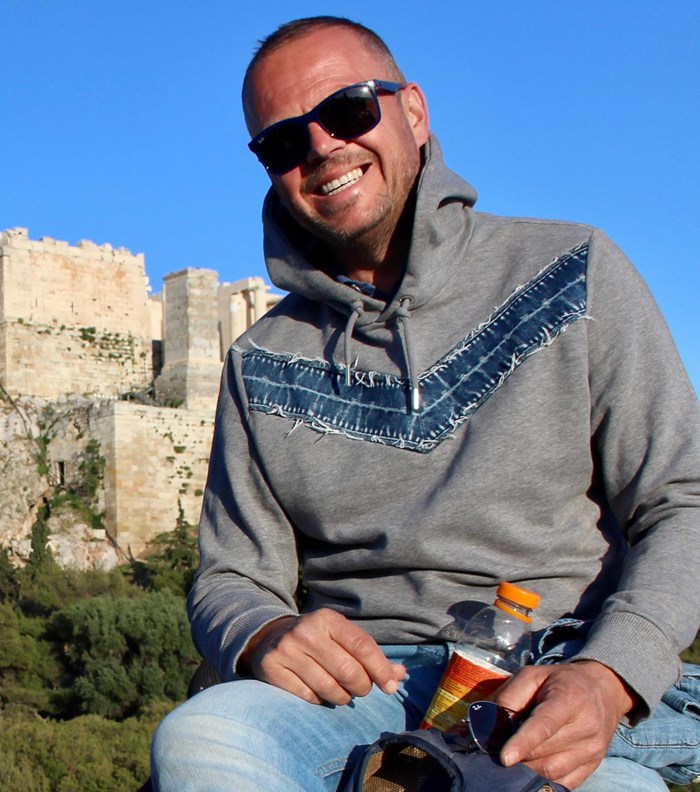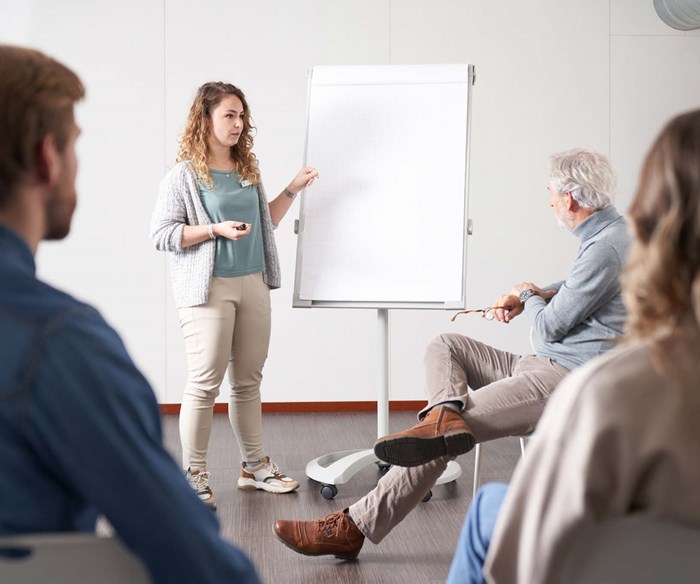It is May 2014. Jetze Christiaanse, then 44, packs his suitcase and leaves his wife and daughter. "I thought they were better off without me," he says. Now everything is different and he is a member of U-center's client council. How he got to that place and what's so interesting about it?
"My days consisted of getting up, drinking and falling asleep again," Jetze says. "I especially felt that my daughter, then nine, could no longer see me like this." The people who visited him at that time were mostly drinking buddies. At work, as a customer service manager at an insurance company, he called in sick. "The worst job imaginable for someone with ADD, who has problems with attention and concentration. Everything revolves around scheduling."
He moves into a hotel nearby. Coincidentally, the same hotel where U-center starts the international clinic a few years later. At night, he hangs out depressed at the bar of a restaurant at the bottom of a hill. Not knowing that atop that hill is a clinic that offers help for addictions and other mental health problems. Until one day his wife comes to get him: "I'll take you to U-center."

Peace of mind
Fourteen intensive weeks followed: (then) seven weeks in the clinic and seven weeks of aftercare at home. "I had visited psychologists before, but made little progress with occasional appointments. That I stayed longer at U-center and had a rhythm, that alone calmed me down." He also finds out why he drinks: to get peace of mind and to mask his social phobia and low self-esteem.
With a toolbox full of new skills, he then goes to work on his own. He focuses mainly on staying clean. So he looks for distractions when his drinking gets the better of him. For example, by taking walks with his new roommate: a brown labrador. He also joins U-center's client council. "I was so grateful for all the help, I wanted to give something back," he says. And he confesses, "It was also a great excuse to visit U-center again. Because did you know they have the most beautiful view in the Netherlands there? And having lunch there: ah, delicious! Very nice people work there, too."
Downhill
Yet Jetze is going downhill again. Because he no longer drinks, his social phobia and low self-esteem are surfacing more. "We sat at home as a family a lot," he says. That's why he chooses treatment at U-center again in 2016. This time with different emphases, for example a lot of drama therapy. In it, among other things, he learns to give the different sides of his character a name and face. "Ah, here we have Calimero again, I now recognize when I avoid people. Or: stop with your negative view, soccer analyst Johan Derksen."
"Because I know myself much better now, I think: actually quite a nice guy. I also lead a much quieter life, with more structure. For example, every Sunday I make a weekly schedule with my wife and daughter. The fact that I have damaged their trust and that of others, remains difficult."

God's gift
He also finds it difficult at first that Jetze becomes totally disabled. "You're supposed to be working, right?" But now he says, "It's a godsend. This way I can contribute more to society." He does that, for example, by training soccer and field hockey teams. By helping young people with addiction. By giving guest lectures at U-center. And by putting his heart and soul into U-center's client council all these years. "That also gave me more self-confidence. Earlier I would not have dared to give this interview, for example. I came across as cheerful and enthusiastic, but inside I was breaking down. Now I feel the way you see me."
With U-center's client council, he makes a special effort to involve family members even better in treatment. To provide even longer aftercare. And to bring in even more experts by experience. To that end, he meets four to six times a year with the management and four times a year with the client council. He is also in regular contact with the other client council members. "We do find that it is quite difficult to get in touch with clients themselves: they are obviously busy with their recovery. Hopefully this interview will help with that. That they know how to find us and become members. After all, it's all about the clients. Whoever signs up for treatment has a hard enough time as it is. Then it is important that you are well taken care of. And just let a client council be indispensable for that."


